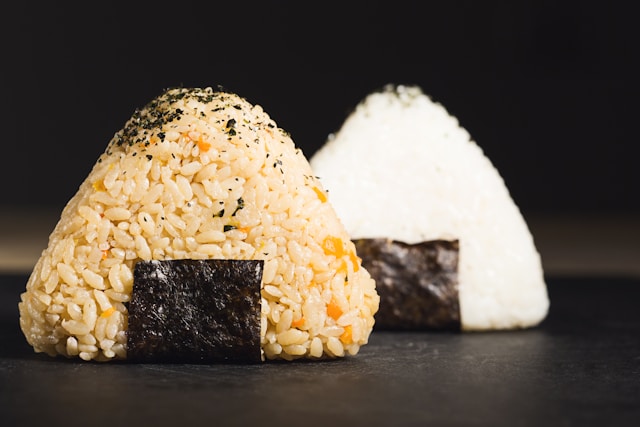The golden rule
You might have been overwhelmed by the various manners in Japan that you have been told about. However, there is only one rule that you should remember if you want to blend into Japanese society: Always be mindful to others and don’t cause them trouble. All different rules are just versions of this principle. Let’s take a look at how this applies in different situations.
In public spaces
Let’s assume that you are living in Tokyo and going out for meeting a person you met online for the first time. You left your apartment, head to the nearest station, ride on a train, and then enter a coffee shop for the appointment.
On the streets: go with the flow
You got out of your room, and now making your way through a busy street toward the nearest metro station. Since it is during rush hours, on the street are visible flows of walking people.
Are there any rules to follow?


It’s subtle, but there are. Remember the underlying principle to mind other people.
People in Japan like to reach their destination on time. So a polite pedestrian would try not to come in the way. You should go with the flow. For that I mean you should merge into the crowd going to the same direction. Never make a sudden stop because they would have to stop to avoid bumping into you. When you want to turn around or change direction, don’t make a 90 degree turn, rather, you could gradually go to the side of the way to avoid collision. This way, soon you would master the art of gliding through Japanese streets like a pro!
On escalators: fast track and slow track

You reached at the station, went through a ticket gate, and now going up to the platform on the escalator. In big cities where escalators get congested, people follow the escalator etiquette as its solution. You can’t stand on the right side of the escalators. It’s reserved for those who are in hurry to walk on. The left side of the escalators is for people who are not in hurry to stop and rest while going up. Even when there is no one on the escalator, you should follow this conventional behavior. In the Osaka city, however, the right-left rule is flipped.
In rural cities, congestion on escalators is rare, so there are generally no specific rules to follow.
On a platform: fall in line
Reaching the platform at the train station, you are now waiting for a train. You see people standing in a curiously ordered manner, but you aren’t sure what order they are standing in.
To find out, look at the ground where the people are standing. There must be marks or seals on the ground which indicate the point where each door of every car will stop, and the people are making two lines on the both sides of where the train doors will open. When the train comes, wait for everyone to get off before riding on the car.
Inside a train car: avoid loud conversation
Inside a train, you get a phone call from your family. As you reach for the talk button, you wonder if it’s okay to talk in this situation.
Generally, speaking on the phone inside a train is considered impolite, unless it’s an important call. If the car is packed with people, it’s best to avoid loud conversation as well as phone call. However, if it’s not crowded, it shouldn’t be a problem.
But, what if someone calls you? You can pick up the phone and quietly say, “I’m on a train, so I’ll call you back,” and hang up.

Do you really need to avoid talking? I just want to have fun.
Having fun itself is not a bad thing, but it’s important to be considerate of others on the train. If you want to talk to someone, try to keep your voice low and it’ll be okay. While Japanese people generally don’t talk much on trains, they will be happy when people from other culture talk to them.

Loud noises can be irksome to the Japanese. We can say that Japanese societal norms have been formed around the preference for silence. Some studies suggest that it may be influenced by genetics, expecially a gene linked to fear. According to these studies, higher population of Japanese have the gene, and those with it tend to feel more comfort in peaceful settings than in more active ones.
In public space: no littering
You arrived at the destination station, got off the train, and off to the town. On the way to the meeting point, you finished drinking a water bottle and want to dispose of it, but there are no trash bins around. What should you do?
In Tokyo, you hardly find any trash bins in public space ever since 1995 due to the terrorism attack. Everyone feels somewhat inconvenient with it, however, you really shouldn’t litter. Instead, you can bring your garbage home. When I do so, I go to a convenience store to buy small items (such as 10 yen chocolate) to get a tiny plastic bag. Then, I wrap the trush with it and knot it tightly so that it won’t leak.
Littering feels like an act of showing hostility towards the public. Although no one would point out directly or outwardly warn them, they would regard the person as ill-informed. If their aquaintance ever saw them littering, it would have a devastating effect on their reputation. Littering can also be a criminal offence, although punishment is rarely executed (Waste Management Law, Article 16 [廃棄物処理法第16条]).
Meeting: be punctual
You’re about to arrive at the coffee shop and check time on your wrist. It’s been 3 minutes past the appointed time, and you suddenly remember that Japanese people are notorious for their strict punctuality. You wonder:

It’s just 3 mins late, but am I being rude to my friend?
Don’t worry, it is not a big deal at all! However, it’s always nice to mention apology casually.

Punctuality is a standard expectation in Japan, whether it is a business meeting or casual meetup. “Be there 5 minutes before the scheduled time” is one of the favorite words of teachers in elementary schools. In business meetings, it is crucial, and you can expect them to show up 5 minutes early.
When meeting a friend, however, you don’t need to take punctuality so rigidly, especially when they know you come from a culture with more relaxed time management attitude.
Inside cafes or restaurants
We have covered on the etiquette at restaurants at Food 101: Tips for Eeating out. One crucial rule is that tipping is not recommended in Japan.
When leaving a place: tidy up
The cafe was self-service style where you line up at the counter to order. You had a good time with your new friend, and now leaving. There is a vacant cup and a tray, and some water you have spilled on a table. What should you do?
When leaving a public space, it is customary to restore the original condition as it was when you came, or even cleaner. Leaving a mess is considered as a shame, and leaving place cleaner than before is considered as a virtue.
In most self-serving cafes such as Starbucks, it is customers’ responsibility to clean up before you leave. Look for the sign that says “return dishes” and “return your cup and tray” there. If you have spilled a small amount of liquid, clean it up with napkins. However, if the amount is a lot and requires cleaner equipments, staff will take care of it.
Conclusion
It is understandable to feel overwhelmed by the many small differences from your culture. When in doubt, it would be helpful to observe and follow what others do. However, it would be very difficult to follow all the small Japanese manners, and your personality is nurtured by your own culture. Enjoying these differences is one of the interesting aspects of intercultural exchange. Therefore, you do not need to worry too much about superficial etiquette. Ultimately, the fact that you are reading this article shows that you are willing to learn and respect cultural differences. With this positive attitude, I bet you will be doing great wherever you go.
The Rules of Living in Japan from everyday manners to ceremonial rituals



